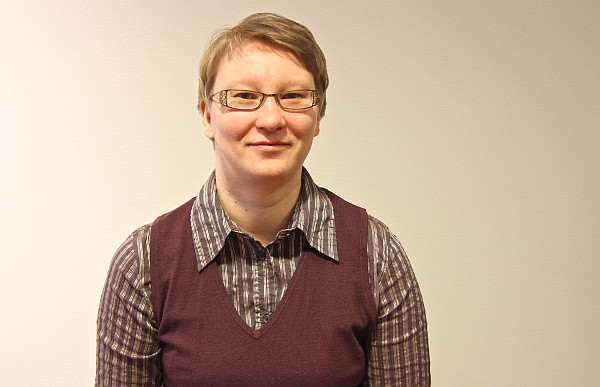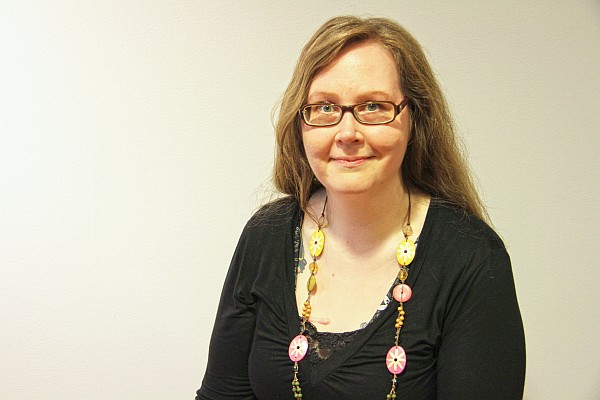Text and photography: Kaisa Järvelä
Two Research Specialists Hired by the FSD
The Finnish Social Science Data Archive (FSD) is expanding its operations to health sciences and the humanities. To achieve this goal, the Archive has hired two research specialists. Annaleena Okuloff and Katja Fält started their work in January 2015.
Their initial tasks have included conducting a survey targeted at humanities and health science researchers, studying what kind of data preservation and open access practices there are in these fields. The results will be published later in the year.
FSD Bulletin interviewed Annaleena and Katja to find out who they are and what they think about archiving and open access to data in their field.

Annaleena Okuloff, Health Research Specialist
My education: M.A. in statistics.
Before starting at FSD I worked... in the University of Oulu, in research teams in the Finnish Institute of Occupational Health, with research focusing on health and mental well-being of municipal employees.
Archiving and opening access to health sciences data is important because... archiving enables efficient use of research data. As long as data protection and privacy issues are carefully handled in archiving and dissemination of data for reuse, archiving benefits science and society in general, as well as research participants. Research results are available more quickly, a subject can be studied more extensively while still using less resources, and fewer individuals need to be subjected to data collection.
The most challenging aspects of data archiving in my field are... related to data protection. Securing the privacy of research participants while still keeping the data usable for further research is not that simple a task.
Archiving and opening practices in my field are at the moment... still in their infancy. Individual research teams may allow access to other teams to some part of their data and a few whole datasets are available on strict use conditions. On the whole, there is little archiving.
So far, the best thing in my present work at the data archive has been... the opportunity to participate in the development of policies and procedures that aim at establishing well-functioning archiving bodies and services for the benefit of research.

Katja Fält, Humanities Research Specialist
My education: PhD in art history, specialising in Finnish mediaeval art.
Before starting at FSD I worked... for a long time as a researcher in the Department of Art and Culture Studies at the University of Jyväskylä.
Archiving and opening access to humanities data is important because... archiving enables more efficient and wider use of data collected with time and effort. Data archiving and reuse also promote the preservation of valuable cultural heritage. The cultural heritage aspect is particularly important for humanities researchers.
The most challenging aspect of data archiving in my field is... that data can be very varied. Most data are qualitative. There is no tradition of data sharing since researchers tend to work on their own, not in research teams. Moreover, many researchers have a very close relationship to their data and therefore no wish to provide access to other researchers. Some are skeptical regarding data anonymisation, as personal and sensitive data are considered very valuable information, particularly in the field of history, without which data are regarded to be less valuable or more uninformative for reuse purposes.
Archiving and opening practices in my field are at the moment... in their infancy, but there is increasing pressure to implement them. A number of researchers have already begun to understand the benefits open science and consequently open access to data would bring to science and to their own careers.
So far, the most interesting task I have had at the FSD has been... the survey targeted at health and humanities researchers with which the Data Archive strives to find out more about attitudes towards data archiving and reuse.
